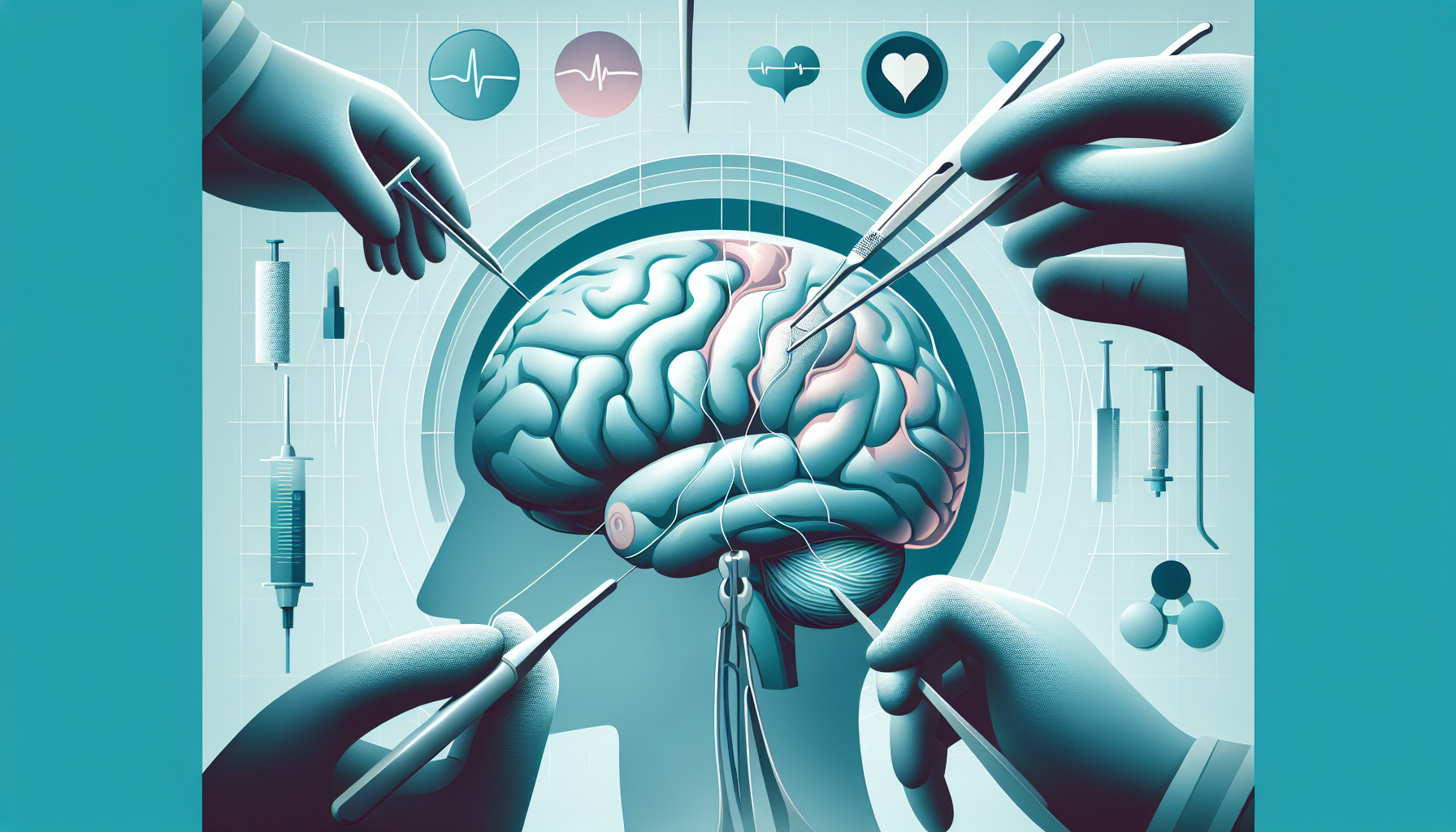Our Summary
This research examined the psychological effects of awake craniotomy (a surgery performed on the brain while the patient is awake) on 20 patients with brain tumors. The study looked at their psychological state before, during, and after the surgery, as well as three months later. It specifically looked at things like fear, anxiety, depression and stress.
The results showed that the surgery did not increase levels of anxiety, depression or stress that were already present before the operation. There was also a strong connection between the levels of these feelings over time. For example, the stress felt three days after the surgery was strongly related to the stress felt three months later.
Interestingly, the fear felt before the surgery did not relate to the amount of pain felt during the surgery. However, there was a strong connection between pre-surgery fear and the pain felt on the third day after the surgery, as well as how much this pain interfered with daily activities.
The overall conclusion was that experiencing awake craniotomy did not negatively affect the patients’ mental health in this study. The fear and pain felt during the operation were not related to the patient’s psychological state before the surgery. However, fear and anxiety before surgery were linked to pain and its effect on daily life after surgery.
FAQs
- Does awake craniotomy increase levels of anxiety, depression or stress?
- How does fear felt before the surgery relate to the pain felt during or after the surgery?
- What is the overall impact of awake craniotomy on patients’ mental health?
Doctor’s Tip
A helpful tip a doctor might give a patient about craniotomy is to communicate openly with their healthcare team about any fears or concerns they may have before the surgery. It is important for patients to address any anxiety or stress they may be feeling, as this can have an impact on their recovery process. Additionally, patients should follow their healthcare team’s recommendations for post-operative care and attend any follow-up appointments to monitor their progress and address any issues that may arise. It is also important for patients to take care of their mental health during the recovery process, such as seeking support from a therapist or counselor if needed.
Suitable For
Patients who are typically recommended for craniotomy are those with brain tumors, aneurysms, arteriovenous malformations, traumatic brain injuries, and other conditions that require surgical intervention on the brain. The decision to perform a craniotomy is based on the specific diagnosis and the individual patient’s medical history and overall health. In some cases, awake craniotomy may be recommended to allow for monitoring of brain function during the surgery.
Timeline
In summary, the timeline of what a patient experiences before and after craniotomy would look something like this:
Before the surgery:
- Patient may experience fear, anxiety, and stress leading up to the surgery
- Psychological state may be assessed by medical professionals
- Patient may undergo pre-operative testing and consultations
During the surgery:
- Patient undergoes awake craniotomy procedure
- Patient may experience pain, discomfort, and fear during the surgery
- Medical team monitors patient’s vital signs and mental state throughout the procedure
After the surgery:
- Patient may experience pain, discomfort, and fear immediately following the surgery
- Patient’s psychological state may be assessed post-operatively
- Patient may experience pain and interference with daily activities in the days following the surgery
- Patient’s psychological state may continue to be monitored in the weeks and months following the surgery
Overall, the study suggests that while awake craniotomy may not negatively impact a patient’s mental health, pre-surgery fear and anxiety may be linked to post-operative pain and its effect on daily life.
What to Ask Your Doctor
Some questions a patient should ask their doctor about craniotomy include:
- What are the potential risks and complications associated with awake craniotomy?
- How will my pain be managed during and after the surgery?
- What can I expect in terms of recovery time and rehabilitation after the surgery?
- Will I need any additional treatments or therapies after the craniotomy?
- How will the surgery affect my daily activities and quality of life?
- Are there any long-term side effects or impacts on cognitive function that I should be aware of?
- How often will I need follow-up appointments or monitoring after the surgery?
- What support resources are available for me and my family during this process?
- Are there any specific lifestyle changes or precautions I should take post-surgery?
- How will the surgery affect my overall mental health and emotional well-being?
Reference
Authors: Hejrati N, Spieler D, Samuel R, Regli L, Weyerbrock A, Surbeck W. Journal: World Neurosurg. 2019 Sep;129:e381-e386. doi: 10.1016/j.wneu.2019.05.156. Epub 2019 May 25. PMID: 31136840
